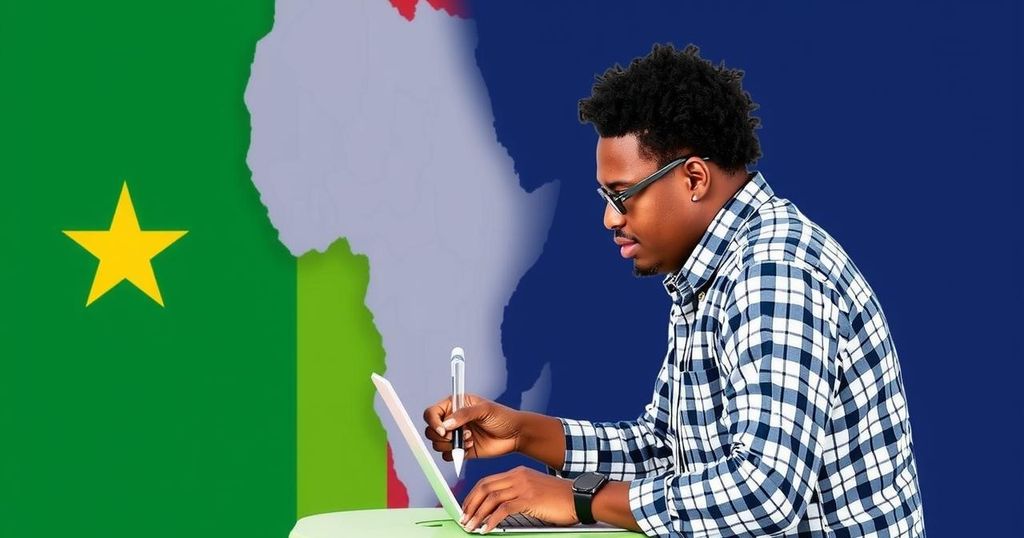Namibia’s Election Turmoil: Extended Voting Amid Irregularities

Namibia’s elections have been extended amidst serious irregularities, including logistical failures and long queues at polling stations. The IPC is urging voters to participate despite frustrations. Political tensions are rising as youth demand change from the ruling Swapo party, which has been in power since independence in 1990, drawing parallels with electoral unrest in Mozambique.
Namibia is currently experiencing significant turmoil as the Electoral Commission of Namibia (ECN) has extended the presidential and parliamentary elections into the weekend. This unprecedented decision follows accusations of irregularities, particularly delays caused by logistical failures such as insufficient ballot papers and malfunctioning electronic tablets. Long queues have resulted in voters being unable to access polling stations, undermining trust in the electoral process as the opposition calls for continued participation despite the chaos.
Opposition parties, especially the Independent Patriots for Change (IPC), are calling for an end to the ruling South West Africa People’s Organisation (Swapo) dominance, which has persisted since Namibia’s independence in 1990. IPC presidential candidate Panduleni Itula has expressed deep concerns about the observed irregularities but encourages citizens to fulfill their civic duty and vote.
The current political landscape is particularly charged as Namibians grapple with a youthful population that feels disillusioned with the existing government due to inadequate job opportunities and economic disparities. Observers are questioning whether Swapo may face electoral consequences similar to those encountered by other former liberation movements in Southern Africa.
This situation occurs against a backdrop of political unrest in the region, as demonstrated by recent protests in Mozambique following contested election results. The outcome of Namibia’s elections could signal a critical turning point in the nation’s political history and its future governance.
Namibia, which gained independence from South African rule in 1990, has been dominated by the Swapo party, which was instrumental in the country’s liberation from colonial oppression. The current electoral crisis is marked by logistical challenges that have raised concerns about the integrity of the election process. With high levels of inequality within an upper-middle-income country, the youth are increasingly frustrated with the status quo, creating a volatile political atmosphere as they seek change.
In summary, Namibia is grappling with significant electoral challenges as irregularities lead to an extended voting period. While the IPC strives to challenge the entrenched power of Swapo, it remains to be seen whether the frustrations of the youth and the opposition’s calls for accountability will translate into a shift in political power. This critical juncture could redefine the country’s political landscape in the years to come.
Original Source: www.aljazeera.com







